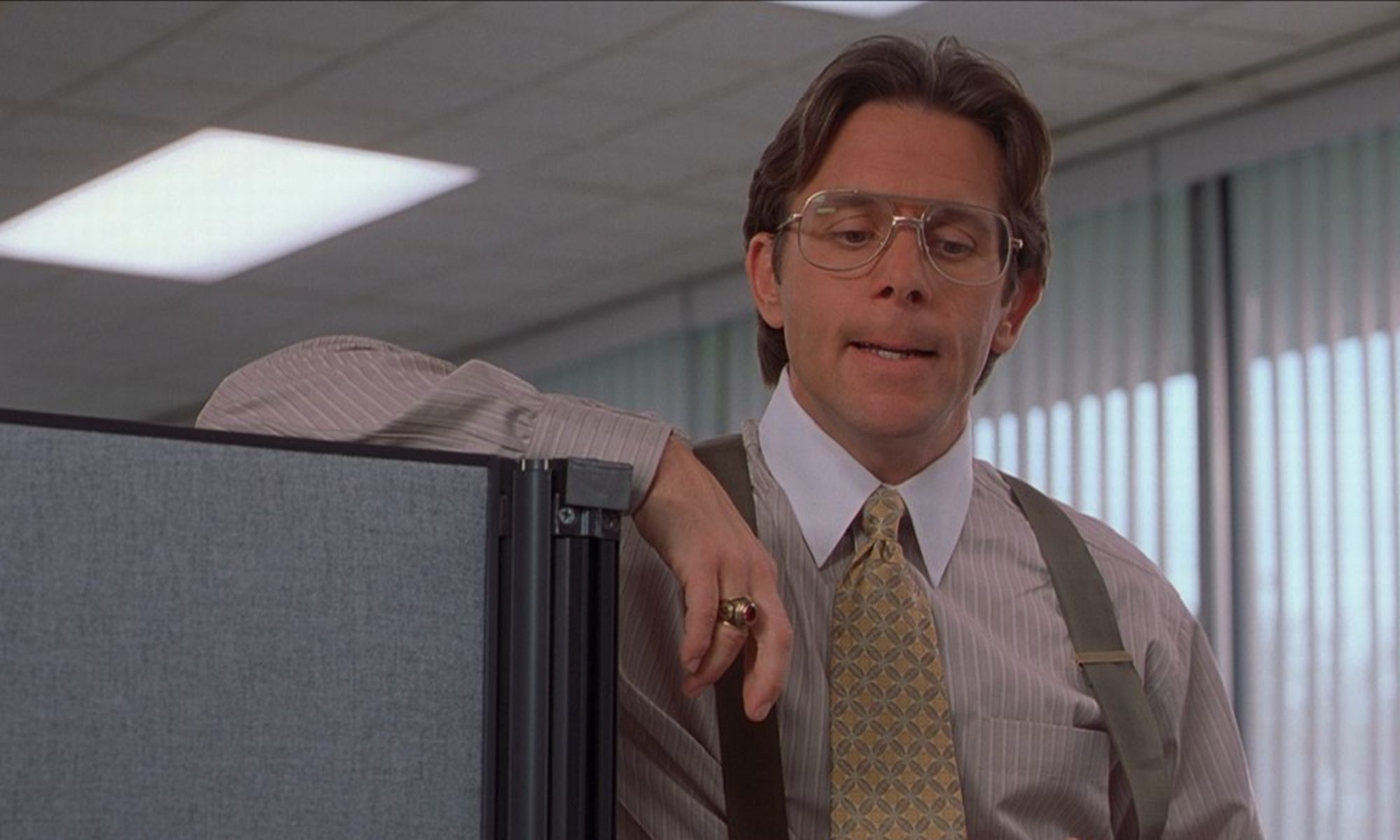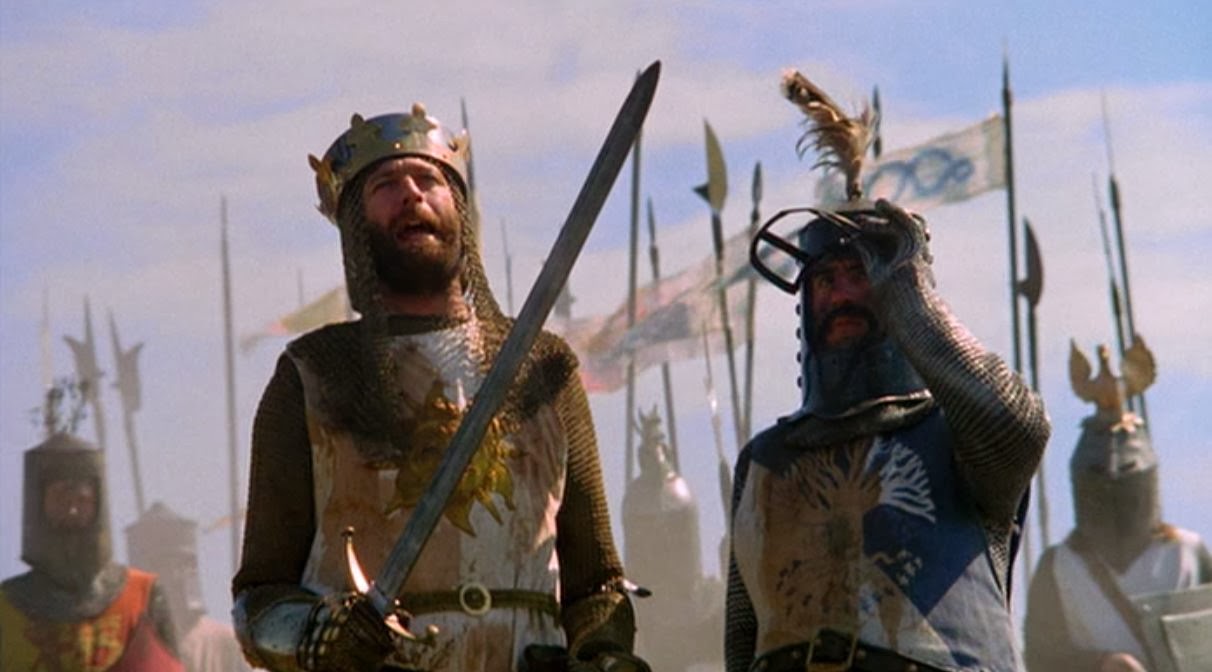Moving Pictures says that a movie is made three separate times. Once by the screenwriter, the second time by the director and crew. And finally lastly by the editor in post-production. (Sharman 163) Editors have a lot of control over the final product of a movie. There is a ratio in movie making called the shooting ratio. This ratio is the number of hours of shot vs the amount actually used. It has evolved from a 10:1 ratio to around a 308:1 ratio. Monty Python’s editing is one of the only relatively conventional things about the movie. While every aspect of Monty Python is usually rule-breaking, its editing is pretty simple. The most extreme aspect of editing is the back and forth editing between live-action acting and something like stop-motion animation. The absurdity of the back and forth between real life and stop-motion is funny and shows that some of the scenes in Monty Python are hilarious because of the editor in the post-production
One aspect of Monty Python and the Holy Grail’s editing that I found interesting was the scene where the same clip of Lancelot running is used over and over for comedic effect. Using the same clip is usually a Faux pas in movies, but Monty Python breaks this rule, which is a common theme around this movie. The confusion of the guards in the scene is the exact confusion that the audience is feeling and the whole joke is from the editing. A lot of scenes in this movie have the editing of the scene itself is the joke. There was a scene where someone is listening to the forest and sounds of power tools and other things that wouldn’t fit in the current time period. A sound effect that doesn’t fit the time period usually takes the audience out of the movie, but because Monty Python doesn’t take itself seriously there is nothing that takes the audience out of the movie.
Moving Pictures says that “The soundscape around us shapes our understanding of the world, becoming its own meaningful context for every other sense perception.” (Shaman 190) The sound design around Monty Python is conventional when it sets up the false expectation of a grand adventure movie, and unconventional when it comes time to be a comedy. Typically for films in regards to music is that the music should fit the surrounding footage. Action music during an Action scene, sad music during a sad scene, etc. This is why the music in Monty Python is usually conventional. Scenes where King Arthur is walking in a field as he adventures through to find the Holy Grail are met with music that is equally adventurous and for a lack of a better word, epic.

